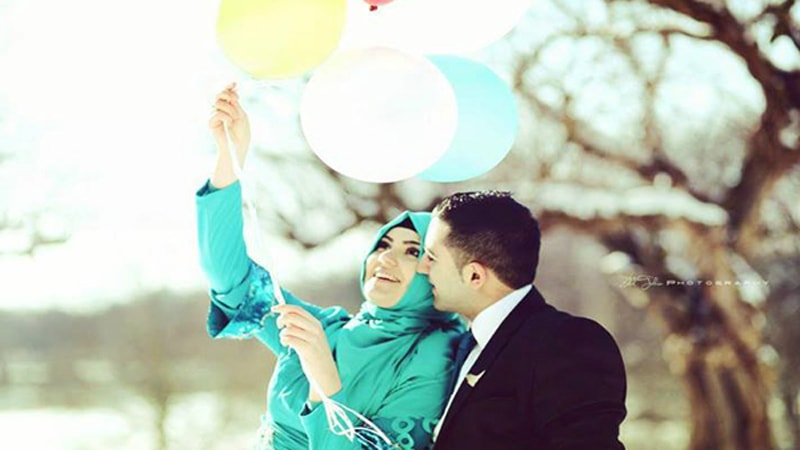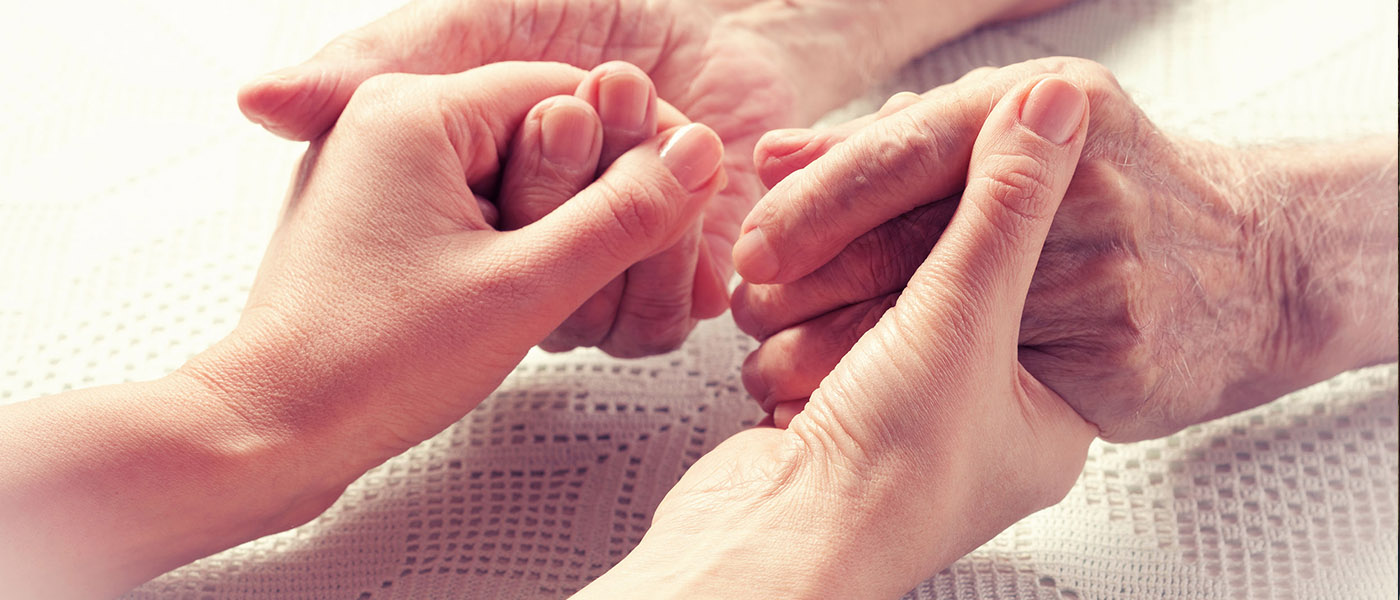

The Importance of Marriage in Islam
“Allah made for you mates from your own selves and appointed for you children and grandchildren from your mates, and We provided you with all the good things. What, do they believe in falsehood while they deny the blessing of Allah?” (16:72)
If you are married, you might have experienced how a successful marriage plays an important part in our lives. Marriage in Islam is the cornerstone of the family and the only relationship that effectively prepares us for the community; so, if it is thought upon carefully and wisely, it will result in the well-being of the society as well as each individual.
Unlike some religious denominations that encourage celibacy as a means of salvation and great virtue, there is no monasticism in Islam [1]. Prophet Muhammad (PBUH&HP) says in this regard: “Marriage is my way (Sunnah), Whoever turns away from it is not ‘among my followers’” [2].
With regard to marriage in Islam, he has also stated: “There is no better structure founded in Islam other than marriage” [3].

The Purpose of Marriage in Islam
According to a narration from Prophet Muhammad (PBUH&HP), marriage in Islam is considered as half of a Muslim’s religion:
“One who marries has already fulfilled half of his religion, therefore he should fear Allah for the other half” [4].
What do you think the reason is? What are the important benefits to which marriage is linked?
Looking into it from different aspects, one might find various reasons for getting married, like money, popularity, religion, beauty, etc. But the religion of Islam focuses on the more spiritual aspect of this holy covenant, i.e., peace, security, and affection:
“And of His signs (God’s signs) is that He created for you mates from your own selves that you may take comfort in them, and He ordained affection and mercy between you. There are indeed signs in that for a people who reflect” (30:21).
The other aspects that make marriage in Islam a necessity in humans’ life are as follows:
Emotional Needs:
As mentioned in the verse of Quran above, marriage in Islam, in the most suitable way, is the source of emotional comfort to us. Quran also says:
“It is He (God) who created you from a single soul, and made from it its mate, that he might find comfort with her” (7:189).
When you get married, the first thing you promise your spouse is to care for her/him, to meet his/her emotional needs. That is what makes you fall in love with your life companion and lets the two of you experience love, affection, mutual understanding, peace of mind, and happiness.
Regarding this matter, Imam Sadiq (AS) has said:
“Whenever a man’s love for his wife increases, his faith increases in quality” [5].
Physical Needs (sexual desire):
Humans naturally possess a sexual instinct which is a significant and strong desire. Everyone feels the urge to have a partner for fulfilling their sexual needs in a safe and serene environment, which will help them grow and reach high levels of perfection and satisfaction.
Abstaining from marriage often results in physical and mental disorders. Doctors from Georgia State University in a study published in 2001 found that those who choose to be celibate are frequently afflicted with feelings of anger, frustration, self-doubt and even depression [6].
The religion of Islam not only recognizes the sexual needs of human but also strongly recommends marriage as the only legal way of fulfilling this desire.
The Social Needs:
Human beings are social creatures, who like all other beings, have urges which lead to starting a family of their own and reproduction. In this regard, Quran says:
“The originator of the heavens and the earth, He made for you mates from your own selves, and mates of the cattle, by which means He multiplies you…” (42:11).
Based on this verse, Children are the results of marriage in Islam that make the procreation of humankind continue. They also play an important role in stabilizing the family foundations. Islam gives a great deal of emphasis to both marriage and bringing up faithful and virtuous children since they are considered as building blocks of a healthy society.
Apart from that, marriage shields the whole society as well as every single individual from lots of evil deeds. It has been narrated from Prophet Muhammad that, when a person gets married at a young age, Satan will become angry since she/he has guarded two-third of his/her religion against him [7]. Married people are less involved in socially destructive acts like any extramarital affairs.

Self-purification
From the Islamic perspective, marriage is not merely a means of legalizing sexual relations. In fact, it unites the existence of the man and woman as a couple, brings them together and makes them complementary to each other.
The peaceful and secure environment that the husband and wife live in is the best place to practice self-control, selflessness, and self-purification. Pious couples always invite one another to goodness. They are also a source of encouragement in preventing each other from committing sins and performing the obligatory acts of worship, which eventually makes them have a respectable and honest life forever.
It has been narrated that once the Prophet (PBUH&HP) went to Imam Ali (AS)’s and Lady Fatimah (AS)’s house after their wedding. He asked Imam Ali (AS) how he found his spouse. Imam replied: “I found Zahra (AS) as the best help in worshipping the Almighty Allah.” The Prophet (PBUH&HP) then asked Fatimah al-Zahra (AS) the same question, and she replied: “He is the best husband” [7].
We learn from this narration that one of the main purposes of marriage is actually what Imam Ali (AS) has mentioned, i.e., serving Allah. When a man and a woman get married, the two become one. The bond between them mirrors the unconditional love between The Creator and us, and this is the ultimate experience a true believer always seeks to have.
References:
- Al-Qadi al-Nu'man, Daim al-Islam, v. 2, p. 193, h. 701
- Bihar al-Anwar, v. 103, p 220.
- Wasa 'il al Shiah, vol 14, p 3.
- Wasa’il ul-Shi’a, Vol. 14, p 5.
- Wasa’il, vol 20. p 24, H 24931.
- Navader (Ravandi), p 12.
- Bihar al-Anwar, vol 43, p 117.
Share This Article

The Kind Nurse
“Your Lord has decreed that you shall not worship anyone except Him, and He has enjoined kindness to parents. Should they reach old age at your side one of them or both do not say to them," Fie!" And do not chide them, but speak to them noble words” (17:23). Sitting on the porch of her house, with a deep frown on her face, she seemed absorbed by some unending thoughts. She did not know where she was, neither the boy who was so kindly and attentively taking care of her like a kind nurse, nor the deep unknown feeling that steered within her when he helped her. The only thing she remembered, was that her beloved husband had died and she was left alone.
It had been so many years since the mirror in her room reflected the view of a white-haired, withered, old woman sitting in a wheelchair. But still, she wanted to solve the mystery of the boy’s identity. “Someone must have hired him to take care of me,” she thought. “But who? I’m sure I have no one.”
Instantly, the door of the house opened, and the mysterious young nurse appeared, wearing a big and cheerful smile and a warm, loving look on his face [i][ii] [1]. He had brought her pills. As usual, he put the pills one by one and patiently in her mouth and gave her water to swallow them.
Then kissed her on the forehead and hugged her tightly. She remembered the days when she did not feel good. When she shouted and cursed him violently. She also remembered his patient face at those moments, when he was trying so hard to hold back his tears, taking her hands and kissing them. “What kind of a nurse is he?” she wondered. Respect was an inseparable part of his behavior toward her, always observing not to raise his voice, not to walk ahead of her, and not to act in a way that would make her feel ashamed and humiliated [iii] [2].
She did not remember if she had ever asked him who he was. So, she gathered her courage to ask and went inside. Entering the house, she saw a man sitting on the couch, arguing on an apparently serious matter with her nurse. “Let’s not bother them,” she thought and turned her wheelchair toward her room, but suddenly something caught her attention.
The man was shouting so she could not help hearing his words: “she does not remember you, not even your name and you are wasting your time here nursing her? What about your job? You are a successful manager for GOD’s sake!” The old woman turned to the boy to see his face. For the first time, she saw the look of rage in him: “She doesn’t, but I do. She is my mother, and I will take care of her to my last breath. “For the record, I became what you say I am, because of her.”
He suddenly felt the weight of the old woman’s look on him. Tears fell on her cheeks irresistibly. After all, the mystery had been solved: her kind and a generous nurse was her loving son, her one and only child.
The next day, when she woke up, the first thing she wanted to see was the face of her nurse, his smile, his kind look. She did not know his name or that why he was there, but she felt sure that her patient, loving and a nice nurse would never ever leave her alone.
Notes:
[i]. The Messenger of Allah (peace be upon him and his family) said: “Every righteous child who casts a look of mercy and affection upon his parents shall be granted, for every look of his, Rewards equivalent to that of an accepted Hajj.”
[ii]. The Messenger of Allah (peace be upon him and his family) has said: “The look of a child towards his parents out of love for them is an act of worship.”
[iii]. Imam as-Sadiq (peace be upon him) has said (in regards to one’s parents): “Do not cast your gaze upon them except with love and compassion; do not raise your voice above theirs; do not raise your hands above theirs; do not walk ahead of them.”
References:
- 'Allama Majlisi, Bihar al-Anvar, V. 74, p. 73
- ibid, V. 74, P. 79
Read More

What Are the Rights of Parents in Islam? Part 1
A newborn baby who opens his/her eyes to this world is tiny and weak at first; like a rosebud that appears in spring. It is then a burden upon the parents in Islam to take care of this fragile gift, like a compassionate gardener, until the baby grows up and flourishes.
Knowing that our parents as a team have provided for all our needs till we grow up, we naturally respect them. But this becomes of paramount importance when we come to know that how strongly Islam emphasizes parents’ rights and respecting them.
The Importance of the Rights of Parents in Islam
Islam has placed such a strong emphasis on the parents’ rights and worth that showing gratitude and being grateful to them are commanded to, right after Monotheism (Tawhid) in several verses of the Quran [i].
In the nineteenth chapter of the Quran, Surah Maryam, where some moral virtues of Prophet Yahya (PBUH) are mentioned, it is said that he was “good to his parents” (19:14). We also read that Prophet Jesus (PBUH) introduces himself as the servant of Allah who: “[made me] be good to my mother” (19:32).
In a narration, Imam Sadiq (AS) is asked about the best deeds; Imam (AS) answers: “Prayer (Salat) in its stipulated hour, goodness towards parents and Jihad in the way of Allah” [1]. Bringing respect for parents, after prayer (Salat) and before Jihad indicates the high-value Islam places on caring for parents.
In another narration from Imam Sadiq (AS), doing good to parents, whether they are among believers (Mu'min) or disbelievers (Kafir), is known as a duty that no one can be exempted from [2]. He also said that: “Whoever satisfies the parents has satisfied God; and whoever annoys them, has annoyed God” [3].

The Rights of Parents in Islam
Respecting the rights of parents in Islam, whether alive or dead, is highly advised. These rights include:
Obedience to parents as far as it is not against God’s orders or unjust; a situation that one is forbidden to obey his/her parents is: “if they urge you to ascribe to Me as a partner that of which you have no knowledge, then do not obey them”(31:15). But even in this case, one should treat them kindly: “Keep their company honorably in this world” (31:15). Another case where parents’ disobedience is allowed, is when they invite to something unfair: “Be maintainers of justice and witnesses for the sake of Allah, even if it should be against yourselves or [your] parents and near relatives” (4:135).
Respecting them deeply, looking at them with affection, being humble and talking to them with a gentle voice and kind words: “Keep their company honorably in this world” (31:15); “[He has enjoined] kindness to parents. Should any of them or both reach old age at your side, do not say to them, ‘Fie!’ And do not chide them, but speak to them noble words” (17:23); “And lower to them the wing of humility out of mercy” (17:24). In a narration from Imam Reza (AS), saying “Fie” to parents is believed to be the last thing that bothers them; hence, anything greater than that must be definitely avoided. Of other narrations in this regard are: “If your parents upset you, do not react badly; if they hit you, do not react the same but tell them ‘May God forgive you’”; “… do not look at your parents except with a kind look, do not raise your voice on them, nor your hands over their hands, nor walk further than them ” [5]; “whoever looks at his parents with hatred, even if they oppress him, Allah will not accept a single prayer from him” [6]; “Insolence includes a man’s looking at his parents with a sharp gaze” [7].
Being humble regarding parents: “Lower the wing of humility to them, mercifully” (17:24). This humility must arise from deep in your heart and originate from your real affections.
Treat them well: "When We took a pledge from the Children of Israel: ‘Worship no one but Allah, do good to your parents” (2:83). This verse of the Quran reveals that everybody, whether Muslim or not, must treat the parents well.
Imam Hussain (AS) was asked about the meaning of treating well in this verse. The answer was briefly that it means to treat them with ultimate compassion, to show them great respect during their companionship, not to oblige them to ask for what they need but provide them before they mention it [8]. One of the best deeds in Eid al-Adha is said to be doing good to parents [9].
Being beneficent to parents is a duty upon children when they are alive as well as after they pass away. Imam Sadiq (AS) said: “What prevents you from doing good to your parents? Pray [ii], donate, perform the holy pilgrimage (Hajj) and fast (Sawm) in their place because God awards you a lot in return for your good deeds” [10]. It is also said that: "Whoever visits his parents' grave on Fridays, will be forgiven and will be among the virtuous" [11].
And be thankful to them: “Give thanks to Me and to your parents” (31:14).
Praying and asking mercy for them [iii]: “and say, ‘My Lord! Have mercy on them, just as they reared me when I was [a] small [child]’ ” (17:24).
Continue Reading: "What are the Rights of Parents in Islam? Part 2"
Read More

